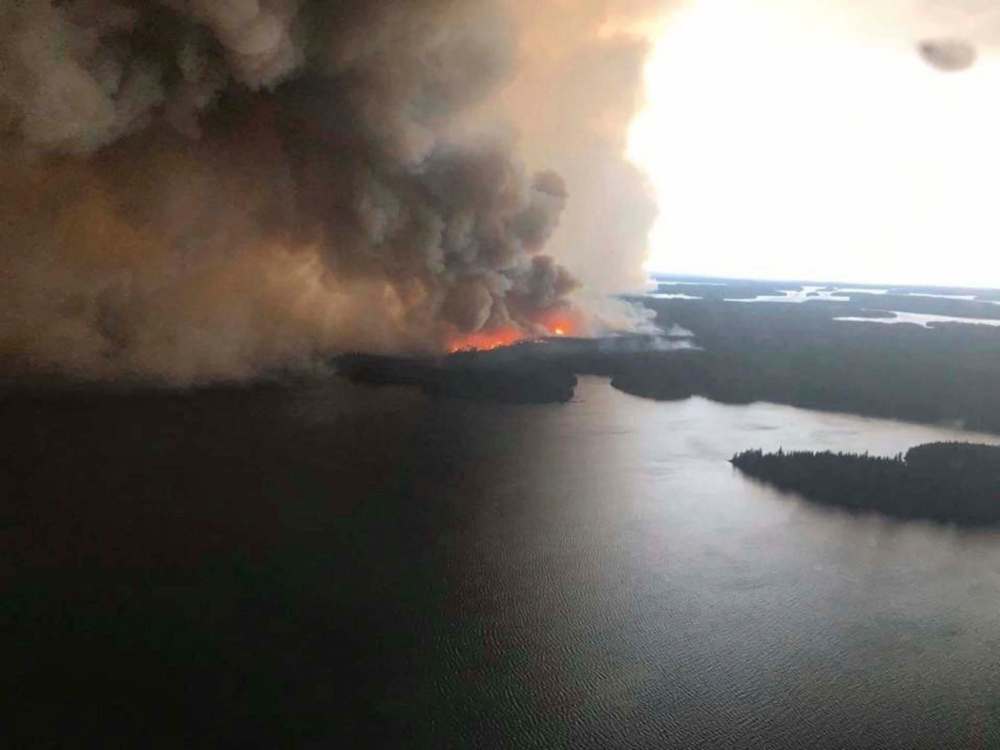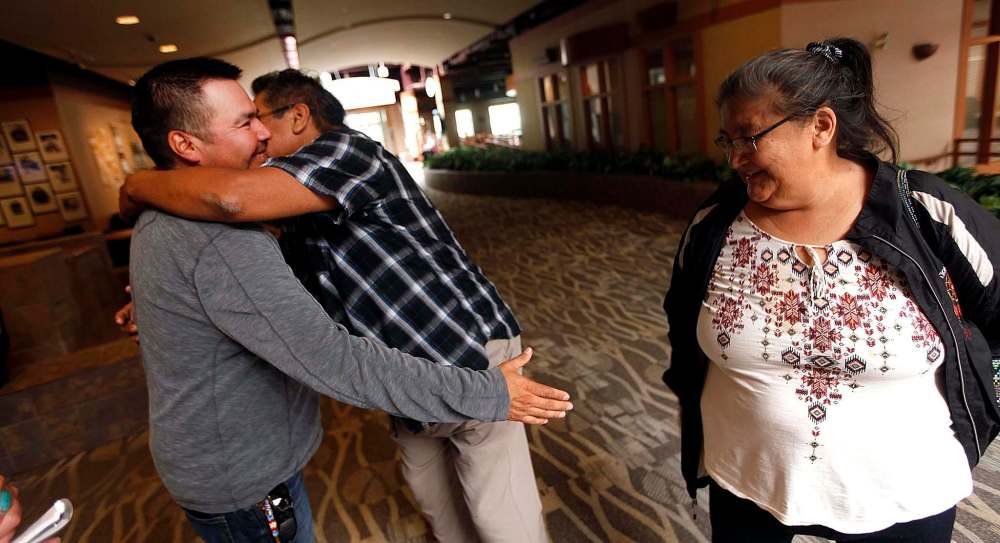Garden Hill evacuees returning home
Advertisement
Read this article for free:
or
Already have an account? Log in here »
To continue reading, please subscribe:
Monthly Digital Subscription
$1 per week for 24 weeks*
- Enjoy unlimited reading on winnipegfreepress.com
- Read the E-Edition, our digital replica newspaper
- Access News Break, our award-winning app
- Play interactive puzzles
*Billed as $4.00 plus GST every four weeks. After 24 weeks, price increases to the regular rate of $19.95 plus GST every four weeks. Offer available to new and qualified returning subscribers only. Cancel any time.
Monthly Digital Subscription
$4.99/week*
- Enjoy unlimited reading on winnipegfreepress.com
- Read the E-Edition, our digital replica newspaper
- Access News Break, our award-winning app
- Play interactive puzzles
*Billed as $19.95 plus GST every four weeks. Cancel any time.
To continue reading, please subscribe:
Add Free Press access to your Brandon Sun subscription for only an additional
$1 for the first 4 weeks*
*Your next subscription payment will increase by $1.00 and you will be charged $16.99 plus GST for four weeks. After four weeks, your payment will increase to $23.99 plus GST every four weeks.
Read unlimited articles for free today:
or
Already have an account? Log in here »
Hey there, time traveller!
This article was published 14/09/2017 (3053 days ago), so information in it may no longer be current.
The residents of Garden Hill First Nation are going home.
Almost two weeks after 2,700 people were driven from the northern Manitoba community by the threat of wildfires and smoke, the first 40 made the return trek Thursday afternoon, the Canadian Red Cross said.
The remainder of registered evacuees — who have recently been staying in hotels in Winnipeg, Brandon and Portage la Prairie — will begin boarding flights Friday to Garden Hill, 500 kilometres northeast of Winnipeg on the shore of Island Lake.

A full return of the population is expected to take a few days, said Jason Small, Red Cross communications manager for Manitoba and Nunavut.
“It all depends on how many flights we get out (of Winnipeg), how many people we get out each day,” Small said, adding the return home this week of more than 1,000 St. Theresa Point First Nation evacuees took two days.
Garden Hill is one of three neighbouring northern Manitoba First Nations to have members relocated for health and safety concerns due to recent wildfires. On Aug. 29, evacuations began of Wasagamack First Nation and St. Theresa Point, also located on the shores of Island Lake.
St. Theresa Point residents returned home on flights Sunday and Monday.
Wasagamack officials are still mulling a return date, the Red Cross said Thursday; however, they dispatched a team of 60 to the First Nation this week to work on getting the community ready for a full return.
Forty evacuees from the three First Nations have spent two weeks in Thompson, due to specific health concerns, the Red Cross said.
The decision on when to return home is made by the leadership of each First Nation in consultation with the federal government, Small said.
“We are working closely with the First Nations… to put these plans in place,” he said.
On Monday, Chief Dino Flett said Garden Hill residents were eager to get back to their community and would be en route as soon as it was deemed safe and transportation arranged.
Due to an initial lack of available hotel accommodation in Winnipeg, many of the First Nation’s members were forced to stay in two large temporary emergency shelters set up and managed by the Red Cross. It was not an ideal situation, Flett said.

“There were some tense moments because the people were in the shelters for quite a while and there’s been (cases of) mumps being passed around because it’s so crowded,” the chief told the Free Press.
Flett was unavailable Thursday for comment.
Following the return home of 800 Poplar River (about 340 km north of Winnipeg) residents last week, and the pending successful transport of the Garden Hill population, Wasagamack will be the lone Manitoba First Nation still displaced due to wildfires.
According to the 2016 census, Wasagamack had a population of 1,403.
One of the relief agency’s temporary shelters in Winnipeg at the WSF Soccer North complex remains active, mainly as a place of contact, Small said. Roughly 30 people stayed there Wednesday night, he said.
scott.emmerson@freepress.mb.ca

